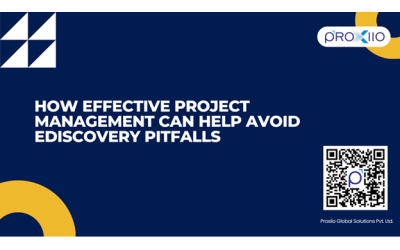
March 05, 2025

Navigating Change
of Control Clauses in Corporate Agreements
In corporate transactions, one of the most critical
yet often overlooked aspects of an agreement is the Change of Control (“COC”)
clause. This provision governs what happens when there is a significant shift
in ownership or control of a company. Whether through a merger, acquisition, or
internal restructuring, understanding and effectively managing COC clauses is
vital for maintaining business continuity, protecting interests, and minimizing
risks.
Understanding the Problem: The Impact of a COC
A COC clause is typically included in corporate
agreements to address the potential risks associated with ownership changes.
The problem arises when the clause is not clearly defined or when it triggers, its
meaning is not thoroughly understood by the involved parties. These clauses can
have wide-ranging implications, especially in high stakes deals like mergers or
acquisitions.
Understanding these risks is crucial to managing
corporate agreements effectively and minimizing disruptions during transitions.
Available Solutions: Managing COC Clauses
There are several solutions available for
addressing the challenges posed by COC clauses in corporate agreements. A
well-drafted and strategically negotiated COC clause can safeguard the
interests of all parties involved.
Proxiio Solutions: Expertise in Navigating COC
Clauses
At Proxiio, we specialize in helping businesses
navigate the complexities of corporate agreements, including the intricacies of
COC clauses. Our team of legal experts works closely with clients to ensure
that these clauses are tailored to meet their specific needs and protect their
long-term interests.
Conclusion: The Importance of Proactive COC
Planning
COC clauses are a critical aspect of corporate agreements;
however, they can be challenging to navigate without the right expertise. Understanding
the potential risks and having a clear, well-structured COC clause in place can
safeguard your company from uncertainty and provide a framework for managing
ownership changes smoothly.
By partnering with Proxiio, businesses can ensure
their agreements are comprehensive, their risk is minimized, and their
interests are protected. With our expertise in contract review, strategic
negotiation, and customized legal solutions, Proxiio offers the guidance and
support needed to successfully navigate COC clauses, providing peace of mind
during corporate transitions.

March 04, 2025
The Vital Role of Quality Control, Assurance, and Validation in eDiscoveryeDiscovery involves collecting, reviewing, and analyzing digital data for legal purposes, a cornerstone of modern legal practice. As legal cases increasingly rely on electronic evidence, ensuring the integrity, accuracy, and ...

March 12, 2024
“You can have a job if you wanted to have a job for personal satisfaction. But the AI would be able to do everything,” quoted Elon Musk which squarely summarizes the challenge that AI could pose to all professionals including ...

May 21, 2025
In today’s digital-first legal environment, the explosion of electronically stored information (ESI) has fundamentally reshaped litigation. While eDiscovery solutions powered by artificial intelligence (AI) offer unparalleled efficiency and unprecedented speed, they can also become complex and overwhelming without proper oversight.That ...

April 05, 2024
“Predictable pricing” is a phrase heard often when it comes to alternative legal solutions providers. In fact, it is used so often and without any merit that it has become meaningless to clients of outsourced legal solutions companies. We hear ...

March 05, 2025
The Complexity of Managing DSARsHandling Data Subject Access Requests (DSARs) is a complex, resource-intensive process for organizations. The traditional approach of manually searching multiple data systems, verifying requester identities, and ensuring compliance with regulations like the GDPR is not only ...

April 15, 2024
In today’s complex global legal landscape, having a dedicated and experienced team behind you can make a difference in the results your organization achieves. At Proxiio, we take pride in our exceptional legal team, who bring a wealth of qualifications, ...